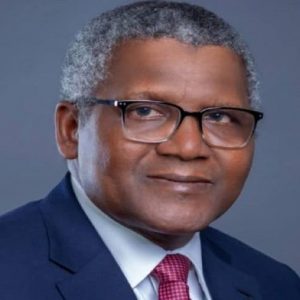One hundred years after his birth and sixty-four years after his death, Frantz Fanon’s words still throb with poignant urgency, and his brilliant insight still slashes through the layers of colonial fog we Africans—and our diaspora kin—continue to stumble through
At just 36 years old, Fanon wrote what generations of tenured professors, self-important “development experts,” and shameless, self-negating, Afro wig-wearing, Oxford and Harvard-trained Uncle Toms have failed to comprehend.
And yet, our schools, from Accra to Abuja, from Cape Town to Cairo, continue to treat this intellectual giant like an obscure footnote.

What a tragedy, an insult, and a confirmation that our education systems are still, as Carter G. Woodson warned, institutions of mis-education built to train obedient servants, hewers of wood, not liberated minds.
Frantz Fanon should not just be on our syllabi. He should be the foundation of our system of education.
In my article “Between Fanon and Nkrumah,” I posited, “A recent convo with a friend led to her asking me why, as a Pan-Africanist, I use more quotes from Frantz Fanon than from the great Apostle of Pan-Africanism, Kwame Nkrumah, (I consider Marcus Mosiah Garvey the doyen of PA.)
My answer was that without a reading and thorough understanding of Fanon, reading Nkrumah will be a wasted exercise.
She asked me which books I would recommend for an African desirous of liberating her mind.
Without hesitation, I told her that books by Fanon (especially ‘Black Skin, White Masks’ and ‘The Wretched of the Earth’) and Carter George Woodson’s ‘The Miseducation of the Negro’ would top my list. I will also add ‘The Destruction of Black Civilization,’ by Chancellor Williams.” – https://femiakogun.substack.com/p/between-fanon-and-nkrumah
I stand by those words.
On the 100th anniversary of Fanon’s birth, I shake my dread and raise my pen in both tribute and outrage—tribute to a mind that burned with the clarity of truth, and outrage at the system that continues to pretend he never existed.
Let us not forget: Fanon was not merely a philosopher. He was a trained psychiatrist. He dissected not just the mind of the individual patient, but the collective trauma of Black people under white domination.
Fanon took the tools of clinical medicine and applied them to colonial society. In this, no other person surpassed him. Albert Memmi did his best, though.
In his magisterial Black Skin, White Masks, written when he was barely in his twenties, Fanon diagnosed what still plagues much of the African continent today: the internalized inferiority complex. What others danced around with euphemisms, Fanon stated boldly: “The Negro enslaved by his inferiority, the white man enslaved by his superiority alike behave by a neurotic orientation.” (Black Skin, White Masks, 1952)
Please read that again, let it simmer, and let it settle. It explains not just our dysfunctional political and economic systems but also the obsession of African elites with mimicking their colonial masters. It explains why some neocolonial fools still proudly wear horse wigs in African courtrooms. It explains why some presidents still seek approval from former colonizers before building roads in their own countries.
In The Wretched of the Earth, Frantz Fanon exposed the pitiful colonial bourgeoisie that took power after independence: “The national bourgeoisie discovers its historical mission: that of an intermediary. Seen through its eyes, its mission has nothing to do with transforming the nation; it consists, prosaically, of being the transmission line between the nation and a capitalism, rampant though camouflaged, which today puts on the mask of neo-colonialism.”
Fanon’s words surely sound familiar when we look at countries and leaders in Africa today. Whether you call them “presidents,” “ministers,” or “technocrats,” they are all glorified plantation managers, as I’ve said again and again. They are the overseers who flog us not with whips but with IMF conditionalities and colonial tax codes. They carry briefcases instead of rifles, but the effect is the same: mass immiseration for the many, obscene comfort for the few.
Frantz Fanon was the Shrink Who Diagnosed a Civilization. I was shocked during debates in Europe with friends and colleagues, both Political Scientists, Psychologists, and Psychiatrists, all of the highest caliber, none of whom had heard of the Greatest Psychiatrist produced by the Black World. I teasingly asked how anyone could treat a Black man in Europe who suffers from racism-induced depression without a knowledge of Fanon.
Plenty of squirming, no one had any answer. No other person has so clinically diagnosed racial oppression with the same brilliance and clarity as Frantz Fanon.
Fanon’s fire remain too hot for the Plantation Gatekeepers we euphemistically called presidents in Africa. That is why Fanon is not on your child’s school reading list? Or why you have to stumble upon him on the internet, or in a dimly lit bookshop run by Pan-African radicals?
Fanon is not only dangerous; he was a phenomenon. If you dare to read just one of his books, you will never be the same again. You are guaranteed your epiphany.
Fanon was too dangerous to the colonial regime, so the French surveillance state watched him closely. He was harmful to the postcolonial puppets, which is why he has been excluded from school curricula across Africa. And he remains dangerous today—to every fake democrat, every Western embassy-funded NGO, and every religious charlatan preaching humility in the face of oppression.
Because Fanon never preached submission, he preached fire and brimstone, resistance, and self-respect grounded in reality, not fantasy or turning the other cheek. He did not tell us to be “grateful” for aid; he told us to reject dependency outright. He did not ask us to love our enemies bent on destroying us; he told us to stand up and fight for our dignity.
“Colonialism is not a machine capable of thinking, a body endowed with reason. It is naked violence.” (The Wretched of the Earth, 1961)
Most astounding, if shocking, is that Fanon remains as relevant in 2025 as he was sixty-plus years ago. When French troops bomb Mali under the guise of “anti-terrorism,” when American drones fly over Somalia with impunity, when African leaders go begging in Paris and Berlin like loyal dogs waiting for scraps, do we not all see the continuation of colonial logic?
Don’t we see why Fanon’s books should be required reading in every African school, from primary to postgraduate level?
Sadly for us Africans, our children know more about Shakespeare than Sankara. More about Harry Potter than Haile Selassie. They can quote Socrates, but not Sekou Touré. And if you mention Fanon, they probably think it’s a mobile phone brand.
This is not an accident. It is systemic cultural sabotage.
One of Fanon’s most enduring legacies is his insight into how slavery and colonialism wrecked the psychology of Black people. In one of the most piercing lines from Black Skin, White Masks, he writes: “The colonized is elevated above his jungle status in proportion to his adoption of the mother country’s cultural standards.”
There you have it—the poisoned root of the inferiority complex.
Sadly, we continue to spend money on an educational system that produces only Africans who are alienated from Africa. To be accepted, our education teaches that you must erase yourself. Your language, your hair, your religion, your rhythm, your worldview, delete them all and upload the white man’s software. You are praised and showered with accolades.
Our elites, bless their lost souls, have all done just that. That’s why they strut around with British accents in African ministries, choose French wine over palm wine, and build foreign embassies that look like palaces while their schools crumble.
African misleaders are the only species of humanity who feel no shame in feeling giddy with excitement when talking to their people in foreign languages. Their colonized minds cannot envision using available technologies to address issues in local languages. They are still, as Fanon put it, “black skin with white masks.”
Fanon was no armchair intellectual. He walked his talk. When Algeria’s revolution called, he did not hide behind a typewriter in Paris. He joined the FLN, wrote for its underground newspaper El Moudjahid, and became a diplomat for the Algerian struggle.
He died of leukemia at just 36 years old, but in that short time, he gave us a lifetime of fire. As I wrote in my piece, Between Fanon and Nkrumah, “Fanon understood, as Nkrumah did, that you cannot decolonize halfway. You either uproot the tree entirely, or it grows back stronger.”
Fanon did not seek recognition from Western academies. He sought liberation for Black people. He did not beg for inclusion. He demanded emancipation.
And what do we do in return? We bury his books, ignore his wisdom, and raise monuments to men who betrayed their people for foreign contracts and Swiss bank accounts.
For the dream of African redemption to be achieved, Fanon must be compulsory in every African school and his works translated into every primary African language— Hausa, Yoruba, Swahili, Igbo, Zulu, Akan, Wolof, and beyond.
Let our children grow up understanding that their minds are the first battleground. The war of liberation is fought not just with guns but with books, language, and memory. Until the inferiority complex is crushed, no infrastructure or “economic growth” will free us.
Fanon showed us that the colonized man carries chains in his head. And unless those chains are broken, he will continue to behave like a slave – even if he’s wearing a suit, flying business class, and calling himself “Excellency.”
“What matters is not to know the world but to change it.” (Black Skin, White Masks)
That’s what education should be about: not memorizing foreign capital cities or solving quadratic equations disconnected from reality, but changing the world, starting with our own.
Frantz Fanon did not live to see the future he dreamed of, but perhaps that is the fate of all true prophets. Prophets’ reward is not in accolades but in the clarity of their vision.
Fanon saw us, wounded, humiliated, lost, and wandering, and he tried to heal us truthfully. Some rejected it. Some still do. As we have decried several times in this blog, the colonial plantation managers we call presidents refused to decolonize the colonial educational system they inherited.
The truth cannot be buried; it will keep rising. Every time a Black youth questions why his African name was mocked in school, every time an African country kicks out foreign troops, every time a young woman in Port-au-Prince, Pretoria, or Paris reads The Wretched of the Earth and finds her voice, Fanon lives again.
Let us not merely celebrate the man on this 100th anniversary of his birth. Let us read him, teach him, live him. Because as long as we walk this earth with the residue of slavery in our minds and the boots of empire on our necks, Fanon is not history. He is the future.
“Each generation must, out of relative obscurity, discover its mission, fulfill it, or betray it.” (The Wretched of the Earth)
What will we do with ours?
Fẹ̀mi Akọ̀mọ̀làfẹ̀
(Farmer, Writer, Published Author, Essayist, Polemicist, Satirist, Social Commentator, Chronicler of collapsing empires.)
My Mission: Stultitia Delenda Est – Stupidity Must be Destroyed!
I am an unapologetic Pan-Africanist who is unconditionally opposed to any form or manifestation of racism, fascism, and discrimination.
I thank you for taking the time to read my articles. I will continue to make them free, and I will not accept advertisements. You can support my work by paying whatever you can afford, liking and commenting on my posts, sharing them with others, and passing the links to other sites you frequent.
Stay ahead with the latest updates!
Join The Podium Media on WhatsApp for real-time news alerts, breaking stories, and exclusive content delivered straight to your phone. Don’t miss a headline — subscribe now!
Chat with Us on WhatsApp








